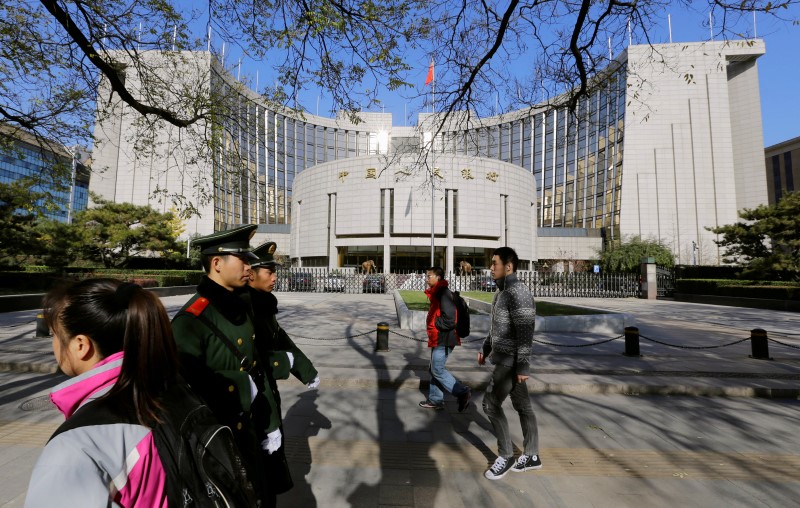(Bloomberg) -- China’s central bank injected the most liquidity via open-market operations since January, in a push to ensure ample cash supply ahead of seasonal tightness at year-end.
The People’s Bank of China added 280 billion yuan into the financial system with 7 and 14-day reverse repurchase agreements Thursday, while keeping the interest rates unchanged. That came after the authorities restarted such operations after a 20-day hiatus on Wednesday. The overnight repo rate, an indicator of interbank liquidity, plunged the most in a month amid the injection.
The nation typically sees tighter liquidity towards the end of a year, when banks are less willing to lend as they need funds for regulatory checks. Cash supply could tighten further in January, as residents across the country take out money to prepare for the Lunar New Year holiday. The liquidity drainage may prompt the PBOC next month to reduce the reserve requirement ratio, providing a boost to the sleepy bond market, economists say.
China Liquidity Jitters Are About to Test Bond Market Again (3)
“The PBOC is still looking to prepare the markets for the year-end,” said Zhaopeng Xing, a markets economist at Australia & New Zealand Banking Group Ltd. in Shanghai. “The amount isn’t that surprising.”
The PBOC cut the rate on medium-term loans in November for the first time since 2016 and lowered the rate on seven-day reverse repos on Nov. 18. It reduced the 14-day rate Wednesday to reflect the earlier policy moves.
The overnight repo rate tumbled by 41 basis points, the most since Nov. 20, to 2.06% as of 10:02 a.m. in Shanghai. The yield on the 10-year government bonds fell 1 basis point to 3.23%.
